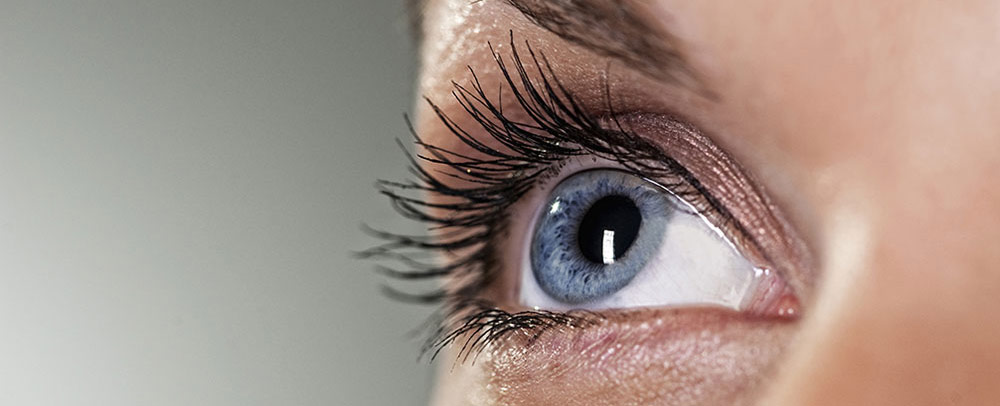Cataract surgery in Haywards Heath
Why not skip the waiting lists and get rapid access to private cataract surgery, performed by our expert ophthalmologists, at Nuffield Health Haywards Heath Hospital?

Why choose Nuffield Health Haywards Heath Hospital for your cataract treatment?
At Nuffield Health Haywards Heath Hospital our experienced ophthalmologists are experts in carrying out cataract surgery, helping give hundreds of patients better eyesight each year. If you are currently suffering from cataracts and want quick access to treatment, our eye specialists can provide you with a consultation and a treatment plan completely personalised to you and the severity of your condition.
All of our eye care staff are highly trained in providing care on an individual basis, with an overall aim of creating a caring environment to encourage a speedy recovery. Cataract surgery is a relatively quick procedure and you can expect to be discharged from hospital on the same day.
Even as a day case patient at Haywards Heath Hospital you will still have access to our outstanding patient facilities which include your own private room to relax in before and after treatment. All of our private patient rooms feature a large en-suite bathroom, TV, radio and wireless internet to ensure that you are comfortable and entertained during your short stay in hospital.
Meet our experts: Vision in focus
Cataracts, glaucoma and age-related macular degeneration are the most likely conditions to affect your vision. Here's how we treat, prevent and manage these thieves of sight and how you can reduce your risk of developing them.
How to book a private cataract consultation at Haywards Heath Hospital
Booking a consultation for cataract surgery with one of our ophthalmologists is easy. Simply call our dedicated hospital enquiry team on 01444 456999, alternatively fill out a contact form and a member of staff will get back to you at a more convenient time.
Please be aware that you will receive eye drops during the consultation to help diagnose the severity of the cataract. We recommend that you arrange transport to and from the hospital, as we strongly advise against driving after receiving the eyedrops.
What is a cataract?
- If you have a cataract, the eye's lens becomes cloudy
- This happens gradually over a long period of time
- Your vision will become blurry as the cataract develops, until the whole of the lens is cloudy
- Your sight will slowly get worse, becoming blurry or misty, making it difficult to see clearly
- Cataracts can happen at any age but usually develop as you get older
- Cataracts can also develop due to diabetes, use of steroid medication, trauma or for genetic reasons
- If a cataract prevents you from reading or driving, or doing your normal day-to-day activities, it is advisable to have surgery
- After surgery, the cataract will be gone and you should be able to see more clearly
- Your eyesight won’t be perfect if you have other eye problems, but you should be able to return to routine activities of daily life and the things you enjoy.
Before your eye operation at Nuffield Health Haywards Heath Hospital
- Before you come into our Haywards Heath Hospital for your eye procedure, you will be asked questions about your general health by one of our nurses
- Further ‘pre-assessment’ questions may be asked over the phone, or you might be asked to come into hospital for some simple tests, such as a blood test or a test on the heart called an ECG (Electrocardiogram)
- Please let us know if you are taking any medication
- Be sure to bring your medication with you on the day of your surgery in their original containers
- If you do take prescribed medicine on a regular basis, we will give you specific advice about continuing your medication, and what to do on the morning of your operation
- If you are a diabetic you’ll be given instructions about your medication on the day of surgery and told when to stop eating and drinking
- It is important that you tell us if you are taking any type of blood thinning medication as this can make your blood clot more slowly
- We need to ensure your blood is clotting normally before we operate.
During cataract surgery
- When it’s time to go to the operating theatre, our ward staff will escort you
- Once there, our theatre staff will take you to the anaesthetic room
- Our experienced ward staff are very reassuring and will understand how you feeling
- You will be given eye drops before the operation. These are prescribed by the consultant and are needed to prepare your eye
- Cataract surgery is usually performed under local anaesthetic
- Your surgeon will make a tiny incision (cut) in your cornea (the outer layer of your eye)
- Using a tiny probe that emits ultrasound waves, your surgeon will break up the cataract and remove the pieces from your eye. This is called phacoemulsification
- A new lens implant will be inserted replacing the cataract.
After your cataract surgery
- Once your eye operation is over, you’ll be taken to recovery
- You will have a protective pad and a plastic shield covering your eye for a few hours
- The local anaesthetic does cause numbness, but normal sensation will return in a few hours
- Your eye may feel little bit uncomfortable but regular pain relief is usually enough to treat this
- After surgery you will be given more eye drops containing a steroid, to help reduce inflammation, as well as an antibiotic to help prevent infection
- Try not to touch or disturb your dressings as this can introduce infection
- If you notice any discharge or have any pain, don’t hesitate to speak to one of the nurses
- After you’ve recovered from the effects of any anaesthetic you can go home.
Going home after cataract surgery in Haywards Heath
- Remember to arrange for someone to drive you home from our Hospital in Haywards Heath
- You may find wearing sunglasses comfortable as your eyes may be sensitive to sunlight
- You may need help at home for the first 24 hours post surgery
- Avoid bending over as this may cause pressure on your eye
- Your eye may be red and bright lights could be uncomfortable
- Your eyesight should improve within a few days, although complete healing can take several months
- You can shower or bath and wash your hair after 48 hours, but be careful not to get soap and water in your eye
- It’s important that you don’t rub your eye
- To prevent yourself doing this in your sleep, you will need to use the plastic shield taped over your eye at night for one to two weeks
- Keep the plastic shield clean by washing it with soap and water
- If you go outside, protect your eye with glasses to avoid anything such as dust or grit blowing into it
- If you find that your eyes become sticky, you can gently wipe the eyelids with cotton wool dampened in cool water that has been boiled
- It’s usual to return to see your consultant as an outpatient after your operation. You will be given details about any appointments before you leave
- You will be prescribed eye drops (see below) to use when you get home. These will have been tested to make sure they are free from germs
- When you get home, you should rest for the first two or three days, but it is important to keep mobile
- Avoid bending over as this may cause pressure on your eye.
Using your eye drops
- Before using your eye drops, wash your hands thoroughly
- Tilt your head backwards and look up; pull down the lower eyelid until there is a small pocket
- Then squeeze the dropper bottle and allow one drop to enter the pocket between the lower lid and the eye
- Try not to let the dropper touch your eye or eyelid
- Close your eye and blink several times, but do not rub it.
Keeping your eye drops
- Keep the bottle tightly closed when not using the drops
- Keep the drops in the refrigerator if you are told to
- Do not put the dropper down on any surface
- Do not let the nozzle of the dropper touch your eye or fingers
- Never lend your eye drops to anyone else
- Dispose of your eye drops after four weeks
- When you open the drops, write the date on the bottle, so you know when to throw them away.
Getting back to normal life
- If you work, your consultant will tell you when you are able to go back to work. It may depend on the type of job you do
- You should avoid excessive bending, lifting heavy objects and doing any strenuous activity for four to six weeks after the operation
- You can do light jobs, housework and cooking almost immediately after the operation and you will be able to read, watch TV and go out as usual
- You should be able to get back to most of your activities by four weeks, as long as your eye has healed
- You can wear glasses if they help with your vision. However, you will need new glasses after the treatment and should visit your optometrist to get them
- Driving is dependent on your vision. You should check with your surgeon when you can drive again. If you are in any doubt about your insurance cover, it’s best to contact your insurance company.
Possible complications and risks
As with all surgery, there are risks involved. Your consultant will be well informed about all of these and can talk you through them. General complications from surgery:
- Pain
- Bleeding
- Infection
Specific complications of cataract surgery may include:
- Aching of the eye
- Bruising of the eyelid
- Blurry vision (full healing will take several months)
- Thickening of the lens casing (the part which holds the lens in place). This can be corrected with laser surgery.
Cataract Surgery consultants at Haywards Heath Hospital
Burrell Road, Haywards Heath, RH16 1UD
Guide price
| Initial consultation | from £150 | |
|---|---|---|
| Diagnostics | If needed to determine treatment plan | |
| Treatment | £3,155 | |
| Pre-assessment | Included | |
| Main treatment | Included | |
| Post-discharge care | Included | |
| Pre-assessment, Main treatment and Post-discharge care | £3,155 | |
| Guide price | £3,305 | |
The guide price
stated above is an approximation of the cost of treatment only. The final price
may vary according to Consultant fees, prosthesis or drugs used and any
pre-existing medical conditions which may alter your care pathway.
You will be given a fixed all-inclusive price for treatment following
your initial consultation with a Consultant.
Ways to pay
Nuffield Health promise
Our prices are all-inclusive. We will equal any comparable price. There are no time limits on your aftercare.
Paying for yourself
There are no hidden costs in our treatment prices. The price you see is the price you pay.
Find out morePersonal medical loan
Spread the cost of your treatment with a 6, 10 or 12 month 0% personal medical loan.
Find out moreMedical insurance
We work with you and your insurance provider to get you the treatment you need quickly
Find out moreAsk a question about this treatment
Fill in a contact form below, or give us a call
Thank you
A member of the team will respond to you soon.





